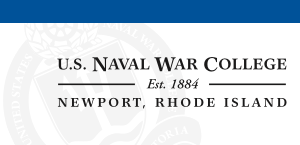Naval War College Review
Abstract
Foreign humanitarian assistance and disaster-relief (FHA/DR) operations are some of the most complicated operations conducted by the military. These missions constitute a core Navy mission; their planning and execution differ from those of a kinetic military campaign, but addressing the key principles early will enable the successful execution. The following lessons learned are based on my experiences over the past two years conducting five FHA/DR operations in the western Pacific.1 Other situations may be different, but these suggestions may make the next operation more productive and rewarding. It is helpful to provide the crew and embarked staffs with an overview of current U.S. government FHA/DR guidance. The overarching principle is to remember one’s place in an operation. The ambassador sets policy and directs the U.S. government team, while the U.S. Agency for International Development (USAID) and the Office of Foreign Disaster Assistance (OFDA) coordinate and manage the U.S. response. The Department of Defense (DoD) plays a supporting role.
Recommended Citation
O'Connor, Cathal
(2012)
"Commentary,"
Naval War College Review: Vol. 65:
No.
1, Article 7.
Available at:
https://digital-commons.usnwc.edu/nwc-review/vol65/iss1/7

